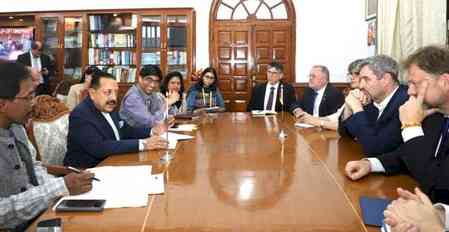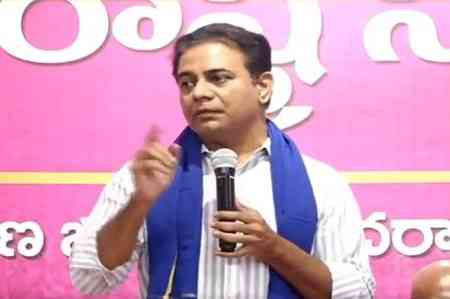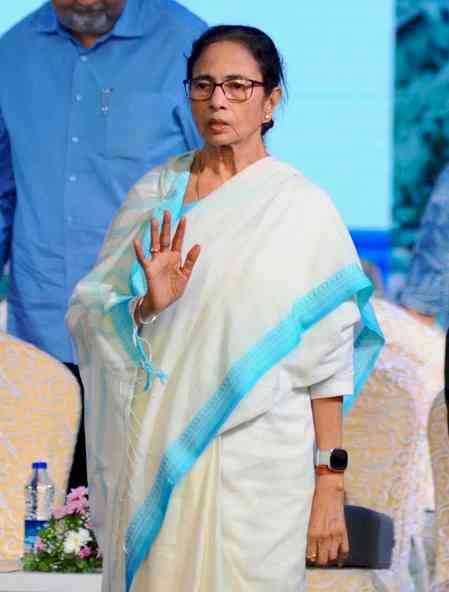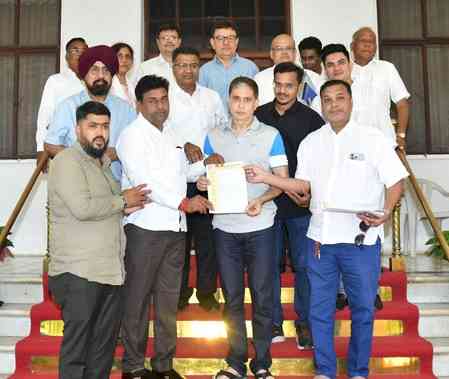India, Germany pledge to boost ties in science, technology & innovation
India and Germany reaffirmed their commitment to strengthening bilateral cooperation in science, technology and innovation during a high-level meeting on Sunday between Union Minister Jitendra Singh and Minister-President of the German State of Bavaria, Markus Soder.

New Delhi, April 13 (IANS) India and Germany reaffirmed their commitment to strengthening bilateral cooperation in science, technology and innovation during a high-level meeting on Sunday between Union Minister Jitendra Singh and Minister-President of the German State of Bavaria, Markus Soder.
A one-on-one bilateral meeting between the two leaders, was followed by high-level delegation level talks led by the two Ministers.
Welcoming the German delegation, Dr. Jitendra Singh emphasised the potential for bilateral cooperation in priority areas including Artificial Intelligence, Quantum Technologies, Biotechnology, Clean Energy, Electric Mobility, Cyber-Physical Systems, and Green Hydrogen.
"India has embarked on mission-mode programmes under the visionary leadership of Prime Minister Narendra Modi. We seek economic and sustainable solutions through scientific and technological interventions, and Germany is a natural partner in this endeavour,” Minister of State (independent charge) for Science and Technology Jitendra Singh said.
He applauded the Indo-German 2+2 collaboration model involving joint efforts between academia and industry from both countries, calling it a landmark step toward creating future-ready, innovation-driven ecosystems.
"The 2+2 collaboration is a futuristic model. It brings together universities and industries from both countries to solve global challenges through innovation, co-development, and commercialization,” the minister said.
Singh spotlighted India's remarkable progress in the biotech sector, boasting over 3000 startups and leading globally as the largest vaccine manufacturer. He noted the significance of the recently approved BIOe3 policy, which focuses on Energy, Economy, and Employment to drive the next wave of biotech innovation.
He outlined India's emergence as a biotech powerhouse with over 3000 startups and the recent launch of the BIOe3 policy, aimed at driving Energy, Economy, and Employment through biotech innovation.
The Science and Technology Minister stated that India’s Space-Tech and Nuclear sectors, now open to private players, offer tremendous collaborative opportunities. He further stated that India ranks 3rd globally in startups and unicorns, making it a vibrant destination for tech partnerships.
“India's academic outreach to Germany continues to deepen, with over 50,000 Indian students enrolled in German universities—mostly in STEM disciplines—a number that has tripled in the last seven years”, Jitendra Singh said.
He called for a reciprocal increase in German students studying in India, particularly in the areas of Oriental Studies, Indian Culture, and Traditional Knowledge Systems.
“Germany has emerged as a favoured academic destination for Indian youth. Now we hope to see more German students exploring India’s intellectual heritage and scientific capabilities,” he said.
The German side was represented by Dr. Markus Soder, along with Dr. Philipp Ackermann, German Ambassador to India, and other senior delegates. From the Indian side, Dr. Abhay Karandikar, Secretary, Department of Science and Technology (DST); Dr. Praveen Somasundaram, Head of International Cooperation, and Dr. Alka Sharma, Senior Advisor, Department of Biotechnology, also participated in the deliberations.


 IANS
IANS 








